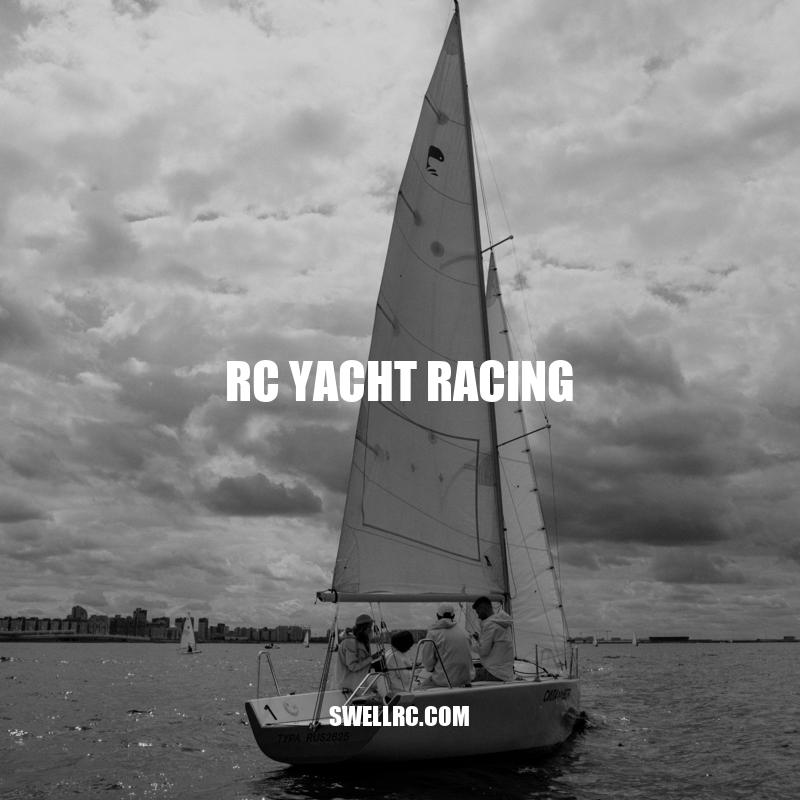RC Yacht Racing: A Thrilling Hobby for Strategic Minds
RC yacht racing is an exciting and engaging hobby enjoyed by many people across the world. This activity involves racing radio-controlled sailboats, which come in different classes and sizes. Today, the popularity of RC yacht racing has increased, making it a thrilling pastime that suits both beginners and professional racers alike. It offers various challenges that make it more interesting for participants. The sport is not only about winning but also about strategizing and problem-solving skills. Competing against other people, dealing with rapidly changing winds, and attempting to gain an advantage over opponents are all aspects of RC yacht racing that require quick reflexes and decision-making abilities. The sport is also an excellent way to get in tune with nature and to appreciate the beauty of the water, sky, and weather. In this article, we will explore the world of RC yacht racing, including its history, the different types of boats used, the equipment required to get started, and tips on how to become a skilled RC yacht racer.
History of RC Yacht Racing
RC yacht racing’s history is traced back to the 1930s when model sailboats began to appear. In the early years, these boats were heavy and had fixed keels, making them difficult to handle. Later developers began using lighter materials such as balsa wood to construct the boats. With the invention of remote control technology in the 1950s, it became possible to operate the boats remotely, giving rise to RC yacht racing as a competitive sport. Since then, the hobby has grown, with enthusiasts taking their yachts to the high seas, lakes, and other water bodies to compete against each other. Some of the most significant milestones in the history of RC yacht racing include:
- The founding of the American Model Yachting Association in 1972.
- The introduction of new classes of RC yachts such as the Marblehead and IOM class.
- The establishment of international organizations such as the International Sailing Federation to regulate the sport.
- The emergence of websites and online communities focused on RC yacht racing.
Moreover, various products such as yacht kits, radio controllers, and batteries made specifically for RC yacht racing have become more readily available, making it possible for anyone to get started and enjoy the sport. If you want to learn more about RC yacht racing, check out Micromark, a website that offers a wide selection of supplies for the hobby.
What is the history of the yacht?
The yacht originated in 14th century Netherlands as small, fast boats used by the Dutch to pursue smugglers, pirates and criminals. Wealthy ship owners and merchants soon began using these “jaghts” to sail in celebration of their returning merchant ships.
Types of RC Yacht Racing
RC yacht racing has evolved to include various classes, each with its unique features, rules, and regulations. The three most popular classes are:
| Class | Size | Length | Sail Area | Maximum Weight |
|---|---|---|---|---|
| Open Class | Unlimited | Any | Any | 40 kg |
| One Meter Class | 1 meter | Varies | Varies | 4 kg |
| Marblehead Class | Marblehead | Varies | Varies | 4.5 kg |
- The Open Class is the most inclusive class as it does not have any size or sail area restrictions. The boats used in this class are often custom-built and can weigh up to 40kg.
- The One Meter Class has a fixed hull length of one meter and a set of restrictions on sail area and weight. It is one of the most popular classes worldwide, mainly because boats in this class are affordable, and building and repairing them is relatively easy.
- The Marblehead Class has a larger sail area than the One Meter Class and a fixed hull length of no more than 1.3 meters. Boats in this class are generally more expensive, and building and repairing them requires greater expertise.
Interestingly, the Marblehead Class is named after a hill on the Isle of Wight where sailors once raced wooden boats in the 1800s. The One Meter Class is the only class of RC yacht racing recognized by the International Sailing Federation. Additionally, there are online resources and communities dedicated to RC yacht racing, such as the American Model Yachting Association, that provide support, advice, and information on building, racing, and repairing RC yachts.
How many classes of yachts are there?
There are several classes of yachts including but not limited to luxury yachts, sailing yachts, motor yachts, and explorer yachts. For more detailed information, you may visit websites like yachtworld.com or boatinternational.com.
Getting Started with RC Yacht Racing
Starting out in RC yacht racing might seem complicated and overwhelming, but it doesn’t have to be. Here are some steps you can take to get started:
- Choose your boat: Decide which type of RC yacht racing boat you want to build or purchase.
- Acquire the necessary gear: You will need a controller, batteries, and a charger. It is recommended that you bring a spare set of batteries to extend playtime.
- Find a group or club: Find a group or club in your area that shares your interest. Networking with fellow RC yacht enthusiasts is an excellent way to learn more and improve your skills.
- Practice, practice, practice: The only way to get good is by practicing. Take advantage of local parks or lakes to work on your skills. You can practice with any boat, even a simple toy boat from a store.
There are several websites and online stores where you can purchase RC yachts, components, and accessories. For instance, Amazon, Banggood, and Horizon Hobby offer a wide range of RC yachts that cater to different budgets and preferences. It is important to note that some websites, such as International One Metre Class Association, provide guidelines and forums about RC yacht racing that may help beginners.
How do you start a yacht race?
In a yacht race, the start can be conducted using different methods depending on the race rules and conditions. One common method is the countdown start where a signal is sounded and a countdown clock displayed to mark the start sequence. Another method is the flag start where different flags are used to signal the starting procedure. To learn more about starting a yacht race, check out the video tutorial on YouTube at https://www.youtube.com/watch?v=ttc7BAEziqs.
The Benefits of Participating in RC Yacht Racing
RC yacht racing is not just a leisure activity but also has numerous benefits. Here are some of them:
Firstly, participating in RC yacht racing helps develop hand-eye coordination and spatial awareness. The racer must maintain stable control over their yacht through a remote controller, which requires diligent attention and quick reflexes.
Secondly, practicing this hobby can enhance one’s planning and strategizing skills, which are vital in achieving the course goals. Racers have to analyze their opponents and the environment to adjust their racing strategies effectively.
Thirdly, RC yacht racing is a great way to enjoy nature’s beauty and appreciate its tranquility while basking in the sun and breeze.
Furthermore, RC yacht racing is a social activity that can create a network of like-minded individuals who share a common interest and passion. Connecting with other racers can help beginners learn more about the hobby, and experienced enthusiasts can enjoy the sport and challenge their skills to compete with others.
In conclusion, RC yacht racing is a fantastic hobby that offers individuals many benefits such as developing skills, connecting with other enthusiasts, and indulging in nature’s beauty. If you are looking for an enjoyable and challenging hobby that requires skills and provides an opportunity to enjoy the water and wind, then RC yacht racing is for you!



